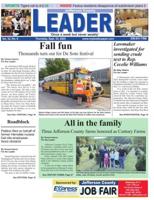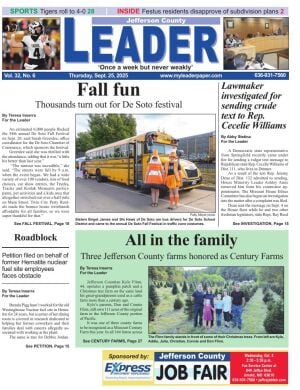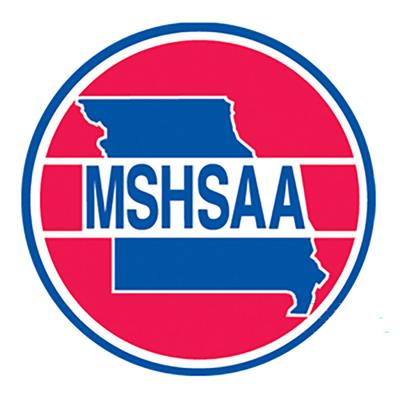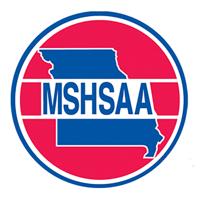Passage of Missouri Senate Bill 63 allows full-time homeschooled students to compete in after-school athletics and activities at public schools without having to attend classes.
Before Gov. Mike Kehoe signed the law earlier this month, some public schools allowed homeschooled, Family Paced Education (FPE) or virtual students to participate in after-school activities provided they attended two or more classes. The law applies to more than just the athletics under the governance of the Missouri State High School Activities Association. Activities like band and drama, among other things, are also included. This is MSHSAA’s 100-year anniversary.
Member schools have a window of Aug. 11-22 to implement the bylaw changes through a special ballot. The rules changes take effect Aug. 25. Homeschooled students must live within the school district boundaries, adhere to academic, conduct and physical eligibility requirements and pay participation fees. The law does not apply to private schools. Once a homeschooled student participates with a member school, they cannot do so with a home school association.
“To remain aligned with Missouri law, MSHSAA member schools must approve the Special Ballot,” MSHSAA Executive Director Jennifer Rukstad said in a written statement. “This is not a matter of preference but of legality. Member schools are strongly encouraged to accept the bylaw changes to ensure uninterrupted, equitable access to interscholastic athletics and activities and protect student eligibility.”
Rukstad concluded by saying compliance is not optional and to remain inline with state law, member schools must approve the special ballot.
Clarifications of the bill include:
• Schools may not require course enrollment beyond prerequisites.
• Schools may require participation in essential instructional components (e.g., band class for marching band).
• All participants, regardless of enrollment type, are expected to meet discipline, attendance, and eligibility standards connected to the applicable sport or activity.
• Students who leave a school to become a resident participant student due to confirmed or anticipated academic or disciplinary ineligibility must wait 365 days before becoming eligible.
• Records created to determine eligibility must be protected by the school of participation unless otherwise required by law.
Schools must align local board policies and school procedures with the new law; clearly outline all participation requirements with students, staff and families; educate coaches and staff regarding eligibility for resident participant students; and determine and implement any changes in internal procedures necessary.
Before the bylaw changes are set, MSHSAA will offer support through a webinar, written communication, annual membership meetings and training sessions for activities directors. Once implemented, MSHSAA will decide on future rule changes.
Scott Allen is the activities director at Eureka High School. Allen said two homeschooled students participated in sports for the Wildcats during the last school year. Allen said he doesn’t anticipate a sudden surge in homeschooled students because of the change.
“We had some (homeschooled) students and made that work and won’t have much of an issue making the new legislation work,” Allen said. “We’re waiting on directives from the Rockwood administration. As far as us complying with the bill, you have to be a resident of the district and prove that you’ve passed your (courses). All of those rules still apply; it’s just they won’t be sitting at our desks seven periods a day.”
Just like the students who attend classes, homeschoolers will have the same 365-day waiting period (barring a hardship ruling by MSHSAA) if they transfer schools.
ADs are still weighing the impact of the legislation and awaiting directions from superintendents.
Festus AD Jason Therrell said he has not heard from any families who are trying to participate at his school under this new law.
“I do anticipate that will change, but I am unsure how many students or to what level,” Therrell said. “As with any educational change, time will tell the overall impact on our department and school. We offer a quality public education at Festus. We welcome any student within our boundaries. We will cooperate fully with the new law and MSHAA for any homeschooled or online students who choose to participate in our extracurricular activities.”
Therrell said if more students enroll in certain activities, expenditures for equipment, uniforms and the like could rise. He said more information is required to do a better cost analysis.
“MSHAA has provided guidance and options for training, and we are monitoring all communications,” he said.
Of the 11 public high schools in Jefferson County, Northwest had the highest enrollment (1,411) for the last school year. AD Kyle Wampler said there’s been interest in participating in sports at the middle and high school levels from homeschooled families.
“At this point, it’s hard to predict exact numbers, but I do expect families to reach out as awareness of the law increases and the school year approaches,” Wampler said.
As to the impact the new law will have on the Northwest athletic department, Wampler said there are still several details the school is waiting on from MSHSAA regarding implementation.
“But adding homeschooled students to our rosters could come with some additional administrative responsibilities but to what scale is unknown.
“Overall, while we support increased opportunities for student involvement, we’re also approaching this shift with the understanding that clear guidelines and support will be crucial to make this successful for everyone — students, coaches, administrators, and families alike.”
MSHSAA communications director Andrew Kauffman said it’s the schools’ responsibility to make sure the bylaws and handbook comply with the state law.
“It’s not a matter of preference, it’s a matter of legality,” Kauffman said. “We are the rule enforcers. The member schools make the rules. The schools will vote those new bylaws in and the (MSHSAA) board will certify it. We can’t flip a switch. We have to go through our process and make sure our membership is as informed as possible. We’ve been following this for quite some time so we’ve been preparing.”
Russ Schmidt is the AD and head football coach at De Soto. Schmidt said as far as he was aware, the middle school football and volleyball teams had homeschoolers who want to play for the Dragons.
“The closer we get to the start of school, the more this is going to mushroom for some districts, possibly more than others,” Schmidt said. “We had received early inquiries from homeschooled families before this became a law in the early spring within the district, expressing interest in participating in sports at the middle school level. At this time, it is hard to predict what those exact numbers will become. The few early conversations that I had indicated that the families were following this situation very closely and understood the language of the bill. I expect families to reach out as we get closer to the start of the school year.”
As far as how this will impact De Soto’s athletic department, Schmidt said there are still many details he is waiting on from MSHSAA regarding implementation.
“I’m expecting some additional training as athletic director on how we will be adding homeschooled students to our rosters, which could come with some additional administrative responsibilities, but the scale of this is unknown.
“In the grand scheme of things, we support increased opportunities for student involvement. I believe we are all approaching this shift with the understanding that clear expectations and support must be in place to make this process successful for all involved.”




